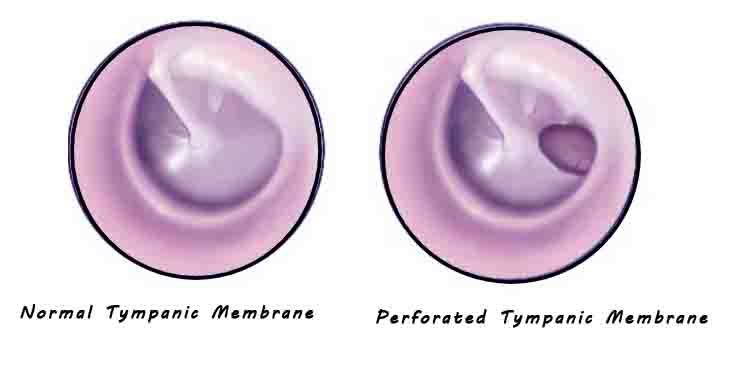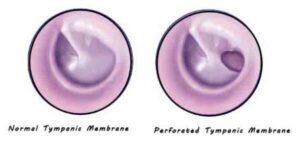What is CSOM treatment?
Chronic Suppurative Otitis Media (CSOM) is a medical term used to describe a persistent and long-lasting infection of the middle ear with continuous or recurrent ear discharge (otorrhea) through a perforation (hole) in the tympanic membrane (eardrum). This condition can lead to hearing loss, discomfort, and other complications if not properly managed.
CSOM is typically classified into two main types:

1. Tubotymoanic CSOM: This type involves infection in the middle ear space, including the tympanic membrane and the space behind it. It often results from chronic inflammation, recurrent acute infections, or unresolved acute otitis media. The infection and discharge might not be as severe as in the other type of CSOM.
2. Attico Antral CSOM: This type is more severe and involves the spread of infection beyond the middle ear space, potentially affecting surrounding structures such as the mastoid bone. It can lead to more significant complications.
What are the symptoms of CSOM?
The symptoms of Chronic Suppurative Otitis Media (CSOM) can vary depending on the severity and duration of the condition. Common symptoms of CSOM may include:

- Ear Discharge (Otorrhea): Persistent or recurrent discharge from the ear, which might be thick, foul-smelling, and yellowish or greenish in color. The discharge might be continuous or intermittent.
- Hearing Loss: Gradual or sudden hearing loss in the affected ear. The severity of the hearing loss can vary, and it might be more pronounced during episodes of active infection.
- Ear Pain or Discomfort: Pain or discomfort in the affected ear, which can range from mild to moderate. The pain might be exacerbated during episodes of infection or discharge.
- Itching or Irritation: Some individuals with CSOM may experience itching or irritation in the ear canal due to the presence of discharge and inflammation.
- Tinnitus: Ringing, buzzing, or other abnormal sounds in the ear (tinnitus) can occur in some cases.
- Feeling of Fullness: A sensation of fullness or pressure in the ear due to the presence of discharge or inflammation.
- Fever: During active infection or inflammation, fever might occur.
Treatment

Chronic Suppurative Otitis Media (CSOM) treatment involves:
- Antibiotics: Prescribed to combat bacterial infection.
- Ear Cleaning: To remove discharge and debris.
- Ear Drops: Target infection within the ear.
- Hygiene: Maintain ear dryness and hygiene.
- Surgery: When conservative methods fail, surgical options like tympanoplasty or mastoidectomy might be considered.
- Hearing Aids: Improve hearing if significant loss occurs.
- Lifestyle: Manage factors like smoking and allergies.
For the most accurate and current information about medical conditions like CSOM, it’s crucial to seek guidance from a skilled medical expert or stay updated with reputable medical sources. When dealing with concerns related to CSOM, consulting an experienced ENT specialist is highly recommended. These professionals can conduct a comprehensive evaluation, including otoscopy, to accurately diagnose the condition and provide tailored treatment options. If you or a loved one needs expert care, consider reaching out to Dr. Ram ENT Hospital, where a team of dedicated specialists is ready to address your ear health needs with precision and compassion. Don’t hesitate to prioritize your well-being—get in touch with Dr. Ram ENT Hospital today for reliable medical guidance and personalized care.


